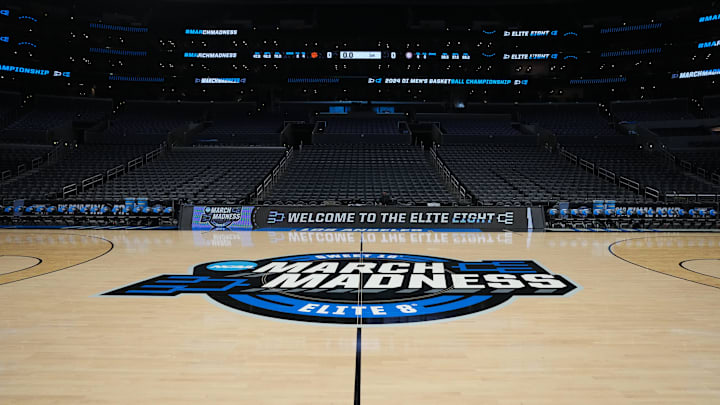Gonzaga remains ‘open-minded’ to NCAA Tournament expansion — if done correctly

There are signs indicating the NCAA men’s and women’s basketball tournaments will expand beyond the 68-team fields at some point, it just might be later rather than sooner.
Ever since the NCAA Division I Transformation Committee recommended that the field should expand back in 2023, part of the NCAA men’s basketball committee’s due diligence is to discuss possible ways to grow the field. That’s why a plan was presented to conference commissioners that would expand the men’s and women’s postseasons to 72 or 76 teams, with the option to remain at 68 teams also on the table, back in June. The idea was put on hold after the men’s basketball committee didn’t move closer on a decision during its meeting in July, though it’s a topic that will likely resurface at some point in the aftermath of other drastic changes that ahead for college athletics.
“Change is at hand, and so I'm open-minded to what it means,” Gonzaga athletic director Chris Standiford said in regard to NCAA Tournament expansion. “If you really want to be a traditionalist, [the tournament’s] been expanding forever.”
Since 1951 in fact, when the tournament grew from eight teams to 16 teams. It doubled again to 32 teams in 1975 before reaching 64 teams in 1985. An opening round game was introduced in 2001. Three more games were added to that for the inaugural First Four in 2011.
Standiford, who’s been in Gonzaga’s athletic department for over 30 years, admitted he wasn’t a fan when the field expanded from 64 to 68 teams. A lot has changed over the past 13 years since the tournament’s last expansion, especially within the past three years in regard to conference realignment and power dynamics in college athletics. As league’s swell to 16 and 18 members, some power conference commissioners have pushed for expansion so that teams from their leagues don’t get left out (even though those bids didn’t go anywhere to begin with).
Standiford’s now open-minded to the idea over concerns that if the tournament stays at its current capacity, automatic-qualifiers will be taken away in favor of at-large bids for teams in power conferences.
“That's the threat of it, right?” Standiford said. “If the eighth, ninth, 10th team in the Big 12 — which is currently the best basketball conference in the country — if they're being left out, and that forces change so that the SWAC doesn't get an [automatic-qualifier] to make accommodation for that; I'm not in support of that change.
"As these power four conferences get bigger and bigger, they need to understand what their identity is. And the reality is that maybe you do need to finish in the top third of that conference to get into this tournament. And they need to be at peace with it.”
Some of Standiford’s concerns are felt at the coaching level as well. In an anonymous poll from CBS Sports, 65% of over 100 head coaches from two dozen leagues voted in favor of expansion (38% voted for 76 teams, 27% voted for 72 teams) while 35% voted to stay at 68 teams. Those who supported the idea were on record saying that the field should go to 72 or 76 teams so that it’s more feasible for mid-majors to get an at-large bid as opposed to awarding those bids to near-.500 power conference teams.
Early 2025 NCAA Tournament Bracketology projections show a record number of at-large bids going to power conference teams this upcoming season. Things will obviously change as the 2024-25 campaign plays out, though Joe Lunardi’s current projections help validate the reasons of some coaches who want the field to expand.
Gonzaga men’s basketball coach Mark Few is intent on listening to the side for expansion, though he remains reluctant on the idea over fears of devaluing the regular season.
“You don’t want to lessen the regular season,” Few said on Gonzaga Nation. “I understand what some of the thought processes are. There is great parity happening. It’s getting harder and harder to maybe choose the 68 [teams]. But at the same time when you go through the mock, well here’s who would’ve got in if we went to 96, it would just make the regular season not nearly as important and probably not very watchable a lot of times.”
“I think all of us are nervous about losing the culture and the flavor of the NCAA Tournament,” Standiford said. “Because certainly having Cinderella emerge in March is the magic that is college basketball. And frankly, it's the part that the nation embraces. It's the tournament that really feeds the college basketball season, versus the opposite. There's so much energy around March, that's truly the essence of what college basketball is defined by, in terms of our culture. So I don't want to screw with it at all.”
